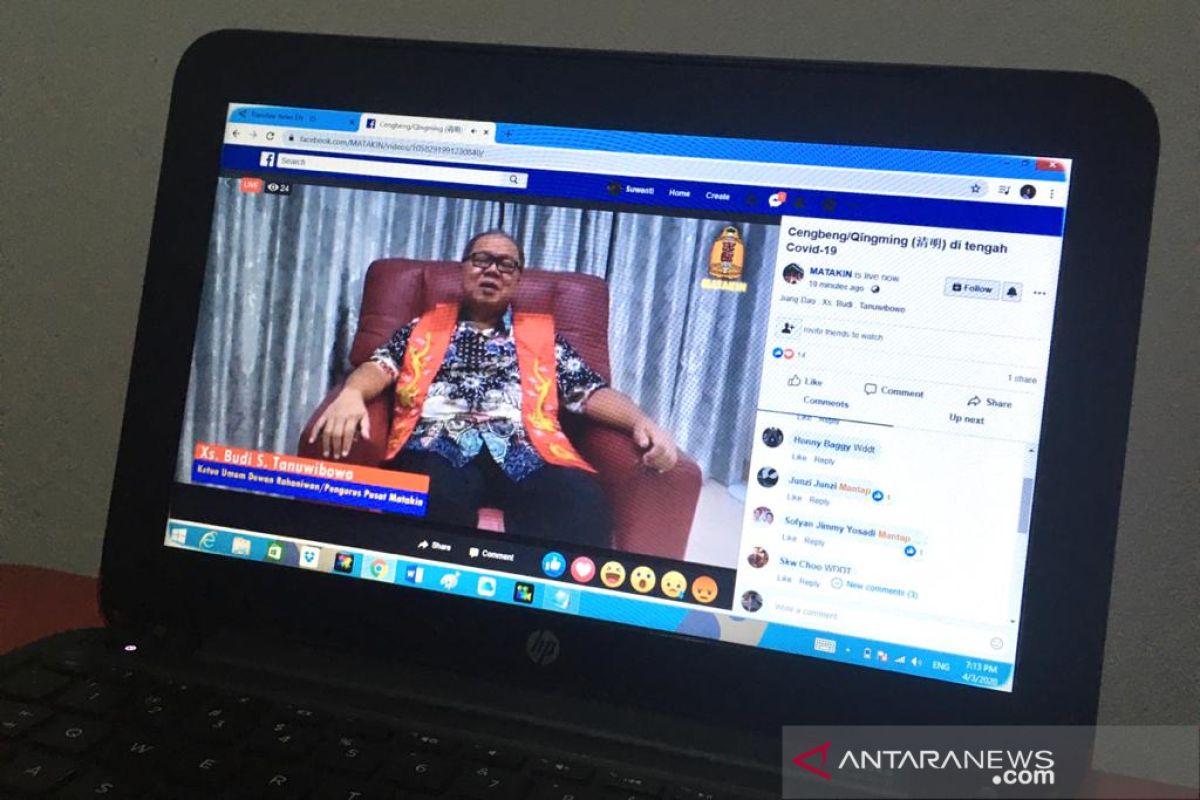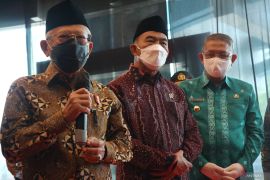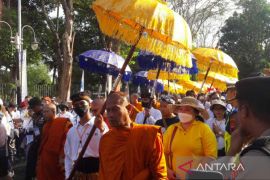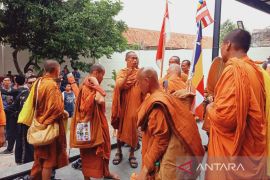If you are now performing good karma by staying at home, maintaining hygiene and health, thus the past bad karma won't easily affect youJakarta (ANTARA) - Today is supposed to be another significant day for Confucians when they would have performed religious prayer over their ancestors' tombs and gathered with family, in the ceng beng tradition.
But, the coronavirus pandemic might have changed this annual worship ritual for the three to four million adherents of Confucianism across Indonesia.
The tradition of ceng beng (from Mandarin's Qingming Jie) is also known as the Tomb-Sweeping Festival, in which people regularly return to their hometowns, as they also do during the Chinese New Year.
The Chinese-related ritual of cleaning gravesites occur during a month-long period from March 21 through April 20, but it peaks on April 4, the mid date of this period.
On March 18, the Supreme Council for the Confucian Religion in Indonesia (Majelis Tinggi Agama Khonghucu/MATAKIN) released a recommendation for its people to remain in their homes and refrain from returning to their hometowns.
"Usually people leave Jakarta for Pontianak, Bangka Belitung, Medan, and other cities... this is what we advise our people not to do so," Budi S Tanuwibowo, the Religious Leader of MATAKIN told ANTARA during a phone interview on April 3.
"Through some videos and official letters, I urged them to not leave, but stay home. Also if they want, they could save some money from the budget for social services, for those who may need it most," he said.
Tanuwibowo explained that ceng beng prayer is a moment when the descendants could show their filial piety and virtue by honoring deceased parents and ancestors.
"But, most importantly, the manners for defending a family's dignity, as well as continuing the parents' kind purposes is what counts. Thus, this does not always require physical attendance," he emphasized.
Aside from this special occasion of ceng beng, other routine worship rituals in temples have been halted since the beginning of March, following the government's advice to avoid crowds to prevent the transmission of the coronavirus.
The religion calls for two common daily worships at home, a personal prayer conducted once in the morning and once before bed in the evening, as well as a prayer for the late parents in front of their altar table.
The worship, usually held at the temple, includes the prayers of ce it and cap go on the first and 15th day of every month of the lunar calendar. There is also a once-a-week communal worship, scheduled by each local council.
"I have instructed people to perform their ce it and cap go prayer at home," Tanuwibowo said, noting that the religious organization has provided hand sanitizers for people.
"For communal worship, we are using various platforms, such as shared videos, Facebook live and Zoom," he added.
After the world's first coronavirus case, later known as COVID-19, emerged in Wuhan, China at the end of December last year, Indonesia confirmed that two local residents, a 64-year-old mother and her 31-year-old daughter, were the first incidents of the virus on March 2.
Official data released by the Task Force of COVID-19 showed, as of April 4, the country has reported 2.092 infection cases.
Among the number, as many as 150 patients tested positive for COVID-19 had already recovered, while 191 patients died.
The Buddhist efforts
Similar actions have been taken by Sangha Theravada Indonesia (STI), a Buddist organization, to combat the coronavirus pandemic.
A letter from STI's head of Bhikkhu (Sanghapamokkha), Sri Pannavaro Mahathera, addressed the stay at home recommendations.
"If you are now performing good karma by staying at home, maintaining hygiene and health, thus the past bad karma won't easily affect you," Pannavaro said.
"But, if you are recklessly doing such bad karma: ignoring the government's guidelines, discarding rules of hygiene and health, thus bad karma will take effect immediately. You will begin suffering."
STI also released official measures, in order to avoid the further spread of coronavirus, including cancelling its Vesak day celebration on May 7.
In a letter dated March 22, it referred to a notice issued by the Chief of the National Police to forbid residents from holding social events that attract mass gatherings, whether in public or private places.
STI listed four points that Buddhists under its guidance could perform during the Day of Vesak 2564 B.E., as noted below.
1. To not perform welcoming Vesak day worship in communal prayer, as well as communal meditating, at the Vihara (monastery) or other community locations.
2. Perform the welcoming prayer and meditation at home.
3. Read and contemplate this year's Vesak day message issued by Sangha Theravada Indonesia.
4. Using social media platforms, such as Youtube, Facebook, Instagram, and others to livestream on Vesak prayer.
At the end of their advice, both the Confucian leader Tanuwibowo and the Buddhist leader Pannavaro delivered the words of virtue to not only perform such prayer for self salvation, but practice kindness to other people, since everyone is struggling together at this time.
"COVID-19 is indeed harmful, but its effect on the social-economy aspects is more dangerous. Doing good deeds will have more value, than only performing prayer," Tanuwibowo said.
Meanwhile, Pannavaro stated in his letter, "To protect yourself means to protect other people. If you are willing to protect other people, then do protect yourself."
Related news: President: Rebuke those who ignore health protocols
Related news: President to evaluate mass religious events amid COVID-19 outbreak
Editor: Mulyo Sunyoto
Copyright © ANTARA 2020












